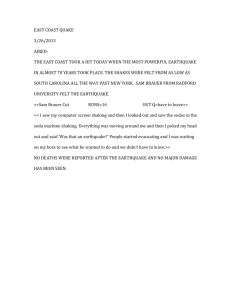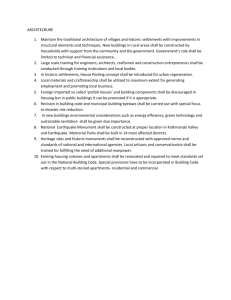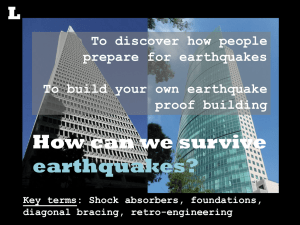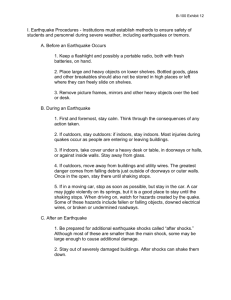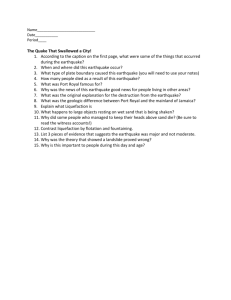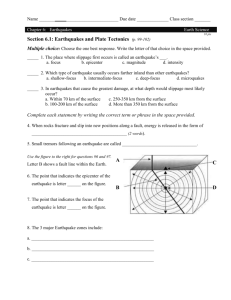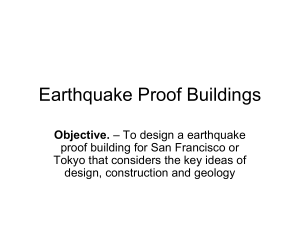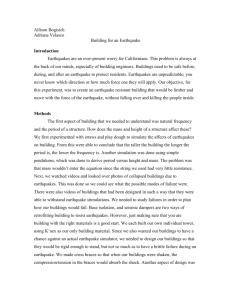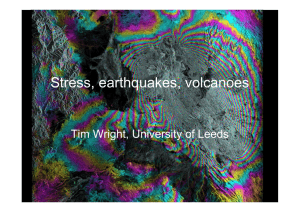Year 7: Earthquake Proof Buildings Your task is to design an
advertisement
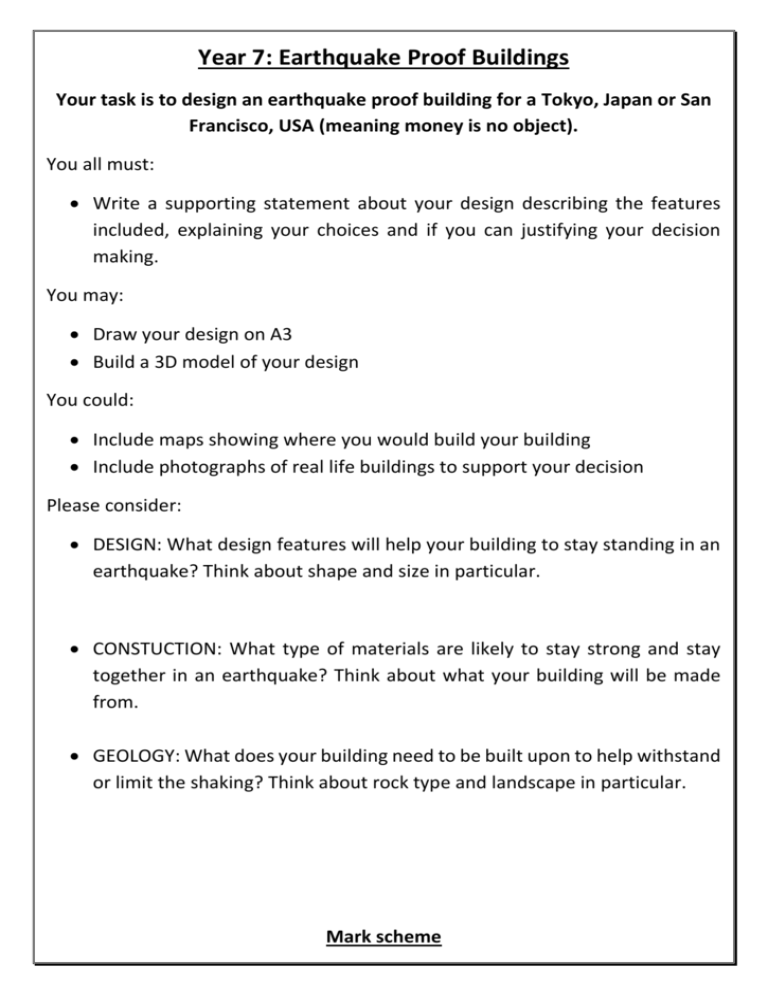
Year 7: Earthquake Proof Buildings Your task is to design an earthquake proof building for a Tokyo, Japan or San Francisco, USA (meaning money is no object). You all must: Write a supporting statement about your design describing the features included, explaining your choices and if you can justifying your decision making. You may: Draw your design on A3 Build a 3D model of your design You could: Include maps showing where you would build your building Include photographs of real life buildings to support your decision Please consider: DESIGN: What design features will help your building to stay standing in an earthquake? Think about shape and size in particular. CONSTUCTION: What type of materials are likely to stay strong and stay together in an earthquake? Think about what your building will be made from. GEOLOGY: What does your building need to be built upon to help withstand or limit the shaking? Think about rock type and landscape in particular. Mark scheme You will receive an IST grade . You should aim for or beyond your target grade. Level G F E D C B A A* What do I need to do? Draw a simple building with basic labels of the features included. Your labels describe the features included and there is evidence of some earthquake proofing. You have included at least one of each of the crucial elements (design, construction and geology). Your labels are descriptive using some key words. Your labels not only describe the features you have included, but you can also offer simplistic reasons for their inclusion. You have classified each feature to show what type of element they are (design or construction or geology) and you have used a key to explain your classifications. You have offered developed explanations for your choice of design, construction and geology, making clear links between them and the possible effects if they were not included in the design. You have offered fully developed explanations, clearly linking multiple factors and ideas together. You show good knowledge of real life earthquake proof buildings and use them as evidence for your choices. You additionally include features on the outside of your building which consider the needs of people during and following an earthquake event. You also design the inside of one of the rooms in your building including features that will protect the people using the space in the event of an earthquake. You fully explain these decisions as well. You not only use evidence to justify your decisions, but also highlight some real life buildings that wouldn’t meet the needs of an earthquake resistant building, explaining why this is the case. You redesign your building for a LEDC, considering the constraints of wealth/poverty. You are again, able to justify your design choices using real life buildings and logical reasons for the changes that are necessary. ] For the highest level you should also consider at least one other factor (e.g. landscape or climate) in your design.

